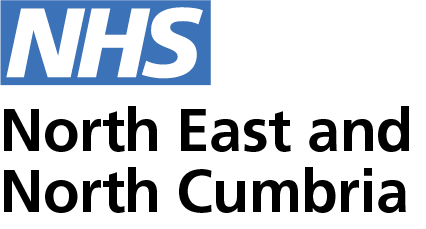Education settings, health, and social care services, together with parents, carers and peers play a key role in supporting Children and Young People’s Emotional Health and Wellbeing and can have a significant impact on the overall experiences and life outcomes for our children. Very few children will need specialist intervention by a clinical service/mental health professional. Locally across Darlington, Emotional Wellbeing and Mental Health support services are provided by the following. Please take your time to visit the following links to ensure you access the right support for your child, young person, and family. The Child and Adolescent Mental Health Services (CAMHS) across Darlington has a single point of access for referrals and self-referrals.
Single Point of Contact (SPOC) is a service available to anyone with concerns including parents, carers, school staff, health professionals and GPs, and children and young people worried about their own mental health. You will be able to chat with a mental health nurse about your worries and concerns and the nurse can then consider the most appropriate next steps to best support the child or young person. Help and support can come in many forms, including self-help guidance, signposting to appropriate support services in the voluntary and third party sectors, or referral into the Child and Adolescent Mental Health Services (CAMHS). For further information please visit Community mental health teams for children and young people in Darlington.
Mental Health Support in schools – can provide early support for children and young people (5-18 years) through education. Supporting schools, young people, and families, the mental health support in schools will target education settings across Darlington.
Please check the following link to see if your child’s school is involved Mental health support teams in schools
Young people can access this support through education and by contacting either Alliance or school’s mental health and wellbeing lead direct. Young people can self-refer via an online e-referral process and parent and carers can also refer on their behalf. A response is aimed for within 24 hours of referral being made. For further information and how to access use the following:
E-Referral or Instagram @alliancemhst
Child and Adolescent Mental Health Services Crisis Team – offer 24/7 support for children and young people in mental health crisis. Call 08000 516171 or visit the website at CAMHS crisis and liaison service.
MIND is a Mental Health charity in Darlington with the aim that everyone in the local area has good mental health. The charity works with all individuals across all communities to ensure they can access support to improve their emotional wellbeing. For further information please visit here.
The North East & North Cumbria Child Health & Wellbeing Network works to bring organisations together to design and deliver joined up services to provide improved outcomes for children and young people. For more information please visit here.
Below are a list of national resources and information for families to access:
This May Help – Children’s Mental Health Advice for Parents and Carers
This May Help, is a new national initiative providing mental health advice to parents and carers. This May Help is aimed at parents and carers who may have concerns about their child’s mental health and is part funded by the Quality Improvement Taskforce for Children and Young People’s Mental Health, Learning Disability and Autism Inpatient Services.
The website gives easy-to-follow advice to help families manage their child’s mental health. This advice was developed by NHS professionals and parents who’ve been through their own child’s mental health journey. Parents and carers have shared advice that helped them and that may also help other families. Professionals who work with children and young people are also being encouraged to use the website.
The advice covered on This May Help includes, self-harm, gaming and online activity, teenagers’ safety, eating disorders, school avoidance, understanding mental health, understanding teenagers, online threats, building rapport, building resilience, building a support network, self-care tips, managing an emergency, managing in a crisis, and preparing for a children and adolescent mental health services (CAMHS) appointment.
These subjects were chosen by families and young people who have gone through their own mental health challenges. Gary Lineker, Myleene Klass, and Tanni Grey-Thompson are amongst 16 presenters featured in the films. Please click here to access more information.
Anna Freud National Centre for Children and Families – provides research, developing clinical practice and policy and workforce development nationally, working to support families of children and young people with mental disorders and associated challenges by developing resilience and supporting to manage these challenges. Visit AnnaFreud website for further information.
Kooth is a free, online forum and counselling/mental health support for young people aged 11+. Visit Kooth to find out more. QWELL is a free, online and counselling/mental health support for adults. Visit Qwell to find out more.
Recovery College Online provides free resources to help support people struggling with mental health difficulties. Visit the recovery college online to find out more.
Childline – free, private, and confidential service where children can talk about anything. Visit Update from Childline
Shout 85258 – free, confidential, 24/7 text messaging support service for anyone who is struggling to cope. Visit here.
WeheartCBT – free CBT resources to help schools, parents and professionals support children with mental health difficulties. Visit here or on Twitter @WeHeartCBT
The Learning Disability Matters website for families has a range of resources to support family resilience and health and wellbeing of children and young people with a learning disability.
